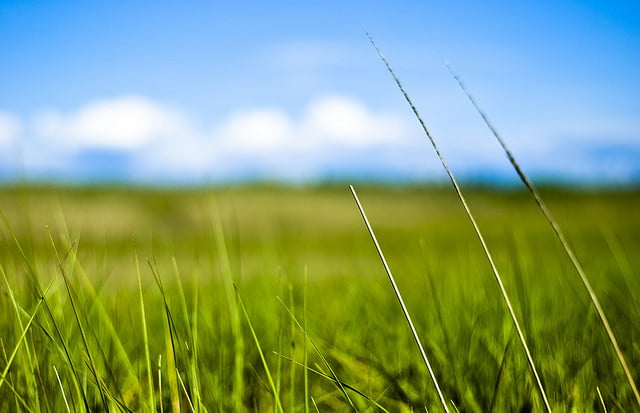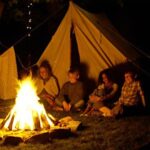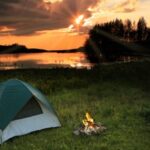by Liz Childers

Growing up in northern Alabama, the pollen was horrendous. My white car could pass for a daisy yellow car for the majority of the spring. A few hours with the windows open and the surfaces in my room were an entirely new shade. And my brother and dad spent much of March through the beginning of the summer violently sneezing, coughing, and teary eyed. It was not a pretty sight. But I was gloriously allergy free.
That is, until college. My first spring spent slightly further north introduced me to new allergens. That April was a haze that accrued sympathy from professors as I stared bleary eyed and confused throughout classes. I finally understood what my family had gone through for years – and it was absolutely horrible.
Today, we welcome the first day of spring. But we also welcome back those allergies. The pollen-induced haze can be enough to force campers who suffer from allergies to keep their sleeping bag stuffed until another season. However, it’s unfortunate to think about missing out on one of the best camping seasons. Here are a few tips from the American Academy of Allergy Asthma & Immunology to help you reduce the affect of allergies during your camping trip.
- Go to an allergist before your plan your camping trip. Not only will you be prescribed medicine that will help you, but you can find out what your specific allergies are. This will help you know what to avoid while camping.
- Set up your campsite in an area that works best with your allergies. For example, if you have a grass allergy, do not pitch your tent in a grassy field. Instead, plan your camping trip to go somewhere you know will have a large dirt clearing where you can camp. Keeping your distance from allergens will be helpful.
- Large fields or wooded areas with a variety of growth can play host to a variety of allergens. Again, plan to avoid setting up camp nearby.
- Air out and clean your camping gear before and after your trip. Mold spores can grow on camping tents, tarps, and even camping backpacks that are left outside; all this gear can also pick up a great deal of pollen just from being outside. By cleaning everything, you will reduce the chance of carrying pollen to and from trips, which increases your overall risk of an allergy attack.



